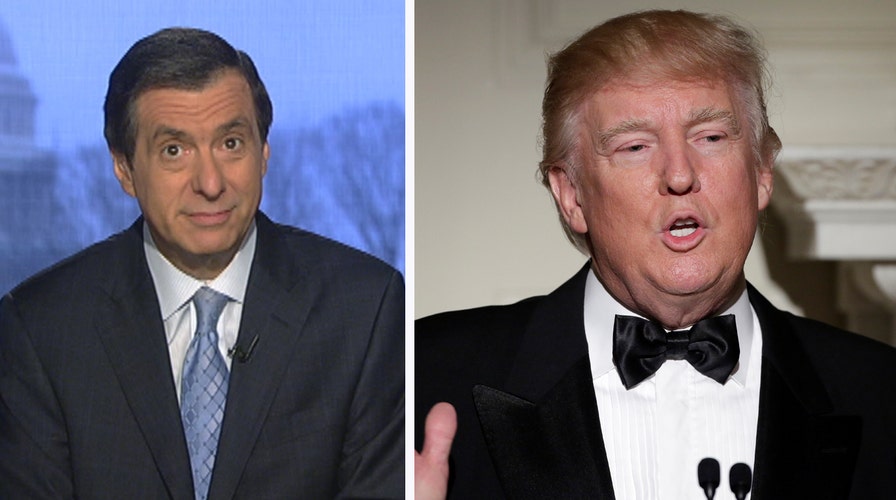Kurtz: Trump vs the Swamp on the budget
'MediaBuzz' host Howard Kurtz weighs in on Trump's next big challenge: delivering his budget plan to Congress
In the last few days, President Trump has made news by excoriating the “fake news” media as the “enemy of the people,” attacking the use of anonymous sources, and blowing off the White House Correspondents Dinner.
Trump also declared the election of Tom Perez as DNC chair to be “rigged” and tweeted this: “Russia talk is FAKE NEWS put out by the Dems, and played up by the media, in order to make the big election defeat and the illegal leaks!”
These are all ways of stirring the pot, and the self-absorbed media relish reporting on the president attacking them and then firing back, creating a seemingly endless loop.
But with the president delivering his first speech to Congress tonight, he faces a very different challenge—shaping a budget and pushing through his priorities—that will do more to determine his success than all the skirmishing with the press.
I was on a press call with a senior OMB official—a couple of reporters complained that the White House was putting out an “anonymous source”—who described the magnitude of what he dubbed a “security budget.”
In pushing for a $54-billion boost in defense spending, Trump will demand offsetting cuts in the rest of the budget. That is huge, and reminiscent of what Ronald Reagan did in 1981.
And like Reagan, Trump also plans to push through a major tax cut that would undoubtedly drain revenue from the Treasury.
Plus, as he told me during the campaign and recently reemphasized, the president doesn’t plan to touch the big-ticket entitlement programs, Medicare and Social Security—despite the adamant stance of House conservatives that without reform they are headed toward bankruptcy.
So that raises real questions about whether the Trumpian budget will blow a big hole in the deficit. Trump’s never been a major balanced-budget guy, and the issue hasn’t resonated in American politics since Ross Perot, but it does add to borrowing costs and impact the economy.
But what will become a massive story in media and politics is the attempt to slice more than $50 billion from what budget wonks call non-defense discretionary spending. That means the money will come from schools, housing, health, agriculture, environment—just about everything else the government does. And also foreign aid, according to the OMB official.
Every program is in that budget because it has a constituency, creates jobs in certain communities, and lobbyists who are prepared to defend it.
There will be a flood of stories about people who would lose their benefits, about the impact on food stamp recipients and farmers, clean air or clean water. Those are important stories, but they can lend an emotional tone to the debate that overshadows the green-eyeshade argument that the country is living beyond its means.
Trump said yesterday that “this defense spending increase will be offset and paid for finding greater savings and efficiencies across the federal government. We’re going to do more with less.” He cited his effort to negotiate cutbacks in the F-35 fighter program.
Most presidents overestimate the amount of waste and fraud in the government, however bloated it may be. Reagan got his way on the budget more than 35 years ago. If Trump can do the same, he will have beaten an array of powerful forces in Washington.





